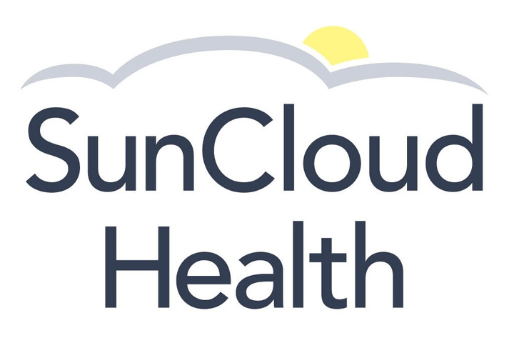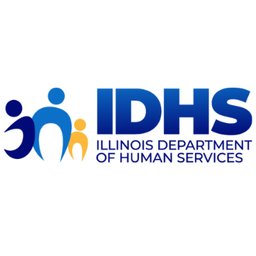Northbrook, Illinois, United States
SunCloud Health
Verified
Verified
This provider’s information has been quality-checked by Recovery.com’s Research Team for accuracy and completeness, including center verification through appropriate third-party organizations.
Joint Commission Accredited
The Joint Commission accreditation is a voluntary, objective process that evaluates and accredits healthcare organizations (like treatment centers) based on performance standards designed to improve quality and safety for patients. To be accredited means the treatment center has been found to meet the Commission's standards for quality and safety in patient care.
Provider's Policy
Many of SunCloud Health’s patients use their in-network benefits to pay for treatment. There is usually a deductible and some form of co-insurance that our patients must pay directly to us. SunCloud Health does not accept Medicaid or Medicare.
Estimated Cash Pay Rate
The cost listed here ($1,000/day) is an estimate of the cash pay price. Center pricing can vary based on program and length of stay. Contact the center for more information. Recovery.com strives for price transparency so you can make an informed decision.
About SunCloud Health
Located in the northern Chicago suburbs, SunCloud Health offers their clientele personalized and integrative treatment with a trauma-informed approach. They treat clients with substance use disorders, mental health conditions, and eating disorders, including those with co-occurring conditions. SunCloud’s services include a 21-bed residential treatment program, day treatment, in-person or virtual intensive outpatient programs (IOP), and outpatient group sessions. Additionally, specialized IOP and day treatment programs are available for adolescents, providing them with comprehensive care and support throughout their recovery journey.
Comprehensive, Trauma-Informed Treatment Solutions
SunCloud is dedicated to a highly personalized approach to address any condition their clients may face. Compassion guides each interaction throughout treatment, from the initial intake session to discharge planning. SunCloud takes pride in conducting thorough and personalized intake sessions led by therapists to ensure that their potential clients fully grasp their conditions, behavioral expectations in treatment and the necessary level of care required. SunCloud's truly integrative approach ensures that clients receive comprehensive care from a multidisciplinary team, including a psychiatrist to oversee medication, a therapist, a registered dietitian, a registered nurse practitioner, a family therapist, and a drug and alcohol counselor if necessary. SunCloud recognizes that most individuals have experienced some level of trauma, whether discrete or chronic, contributing to their condition. From day one, they address trauma using evidence-based therapies, while fostering an environment of safety, trust, collaboration, and empowerment.
A Pathway to Eating Disorder Recovery
The team at SunCloud helps clients with eating disorders by creating a treatment plan that works with each client’s unique strengths, challenges, and needs. Their eating disorder treatment includes a combination of expressive and experiential therapy, skills-based therapies, eye movement therapy (EMDR), psychoeducation about eating disorders, and family therapy. They also offer innovative and holistic therapies like transcranial magnetic stimulation (TMS), nutrition courses, and body image therapy combined with yoga. SunCloud uses health at every size (HAES) principles, emphasizing body weight neutrality and valuing diversity. Their treatment centers on restoring energy, sanity, and health in physical, emotional, social, and spiritual domains.
Advanced Treatment and Continued Care
SunCloud offers innovative treatments to complement evidence-based therapies and medication management. They proudly offer Spravato, a ketamine nasal spray, as a treatment for individuals with treatment-resistant depression. Additionally, they provide transcranial magnetic stimulation (TMS), which can help reduce depressive symptoms like restlessness, sleep loss, irritability, and shortness of breath. These groundbreaking treatments are used in conjunction with clinical talk therapy, group therapy, and medication management, as they are intended to assist in the healing process. When leaving treatment at SunCloud, clients can feel confident as they go on to live a life free from self-destructive thoughts and behaviors. They provide an alumni program with a weekly virtual support group, monthly events, and service opportunities.
Read More

Insurance Accepted
Provider's Policy:Many of SunCloud Health’s patients use their in-network benefits to pay for treatment. There is usually a deductible and some form of co-insurance that our patients must pay directly to us. SunCloud Health does not accept Medicaid or Medicare.
Integrated Model of Care
SunCloud Health employs an integrated model of treatment for clients with co-occurring disorders and underlying trauma. This model simultaneously addresses behaviors and their root causes in a residential or outpatient setting. This approach contrasts with other methods that might treat each condition in isolation.
Process Addictions Treatment
SunCloud Health treats process addictions like compulsive shopping, exercise addiction, and sex and love addiction. The team has successfully treated thousands of men and women seeking help in overcoming a wide variety of process addictions. Personalized care plans may include immediate help with withdrawal symptoms, counseling, family support, group therapy, education, medication, and physical fitness.
Sunny Days Adolescent Program
SunCloud offers a supportive and impactful 8-week, virtual, trauma-informed IOP where adolescents build a strong community, enhance emotional regulation, receive support to improve executive functioning and explore life transitions as teenagers. Adolescents participate in group therapy sessions where they learn distress tolerance skills, mindfulness, boundary setting, and more.
Trauma-Informed Treatment
SunCloud creates a safe, trauma-sensitive space to recover from day one of care. When clients become aware of trauma, they will find new and healthier ways of processing trauma. They learn to get out of “fight, flight or freeze” without self-destruction. Clients’ experiences are met with a safe and trusting therapeutic relationship, building empowerment and resilience.

Center Overview
Estimated Cash Pay Rate
Older Adults
Addiction and mental health treatment caters to adults 55+ and the age-specific challenges that can come with recovery, wellness, and overall happiness.
Adolescents
Teens receive the treatment they need for mental health disorders and addiction, with the added support of educational and vocational services.
Young Adults
Emerging adults ages 18-25 receive treatment catered to the unique challenges of early adulthood, like college, risky behaviors, and vocational struggles.
LGBTQ+
Addiction and mental illnesses in the LGBTQ+ community must be treated with an affirming, safe, and relevant approach, which many centers provide.
Men and Women
Men and women attend treatment for addiction in a co-ed setting, going to therapy groups together to share experiences, struggles, and successes.
Midlife Adults
For adults ages 40+, treatment shifts to focus on the unique challenges, blocks, and risk factors of their age group, and unites peers in a similar community.

Treatment Focus
You can admit to this center with a primary substance use disorder or a primary mental health condition. You'll receive support each step of the way and individualized care catered to your unique situation and diagnosis.

Care Options








Treatment
Specializations
Alcohol
Using alcohol as a coping mechanism, or drinking excessively throughout the week, signals an alcohol use disorder.
Bipolar
This mental health condition is characterized by extreme mood swings between depression, mania, and remission.
Co-Occurring Disorders
A person with multiple mental health diagnoses, such as addiction and depression, has co-occurring disorders also called dual diagnosis.
Depression
Symptoms of depression may include fatigue, a sense of numbness, and loss of interest in activities. This condition can range from mild to severe.
Drug Addiction
Drug addiction is the excessive and repetitive use of substances, despite harmful consequences to a person's life, health, and relationships.
Eating Disorders
An eating disorder is a long-term pattern of unhealthy behavior relating to food. Most people with eating disorders have a distorted self-image.
Opioids
Opioids produce pain-relief and euphoria, which can lead to addiction. This class of drugs includes prescribed medication and the illegal drug heroin.
Prescription Drugs
It's possible to abuse any drug, even prescribed ones. If you crave a medication, or regularly take it more than directed, you may have an addiction.
Trauma
Some traumatic events are so disturbing that they cause long-term mental health problems. Those ongoing issues can also be referred to as "trauma."
Approaches
Evidence-Based
A combination of scientifically rooted therapies and treatments make up evidence-based care, defined by their measured and proven results.
Family Involvement
Providers involve family in the treatment of their loved one through family therapy, visits, or both–because addiction is a family disease.
Holistic
A non-medicinal, wellness-focused approach that aims to align the mind, body, and spirit for deep and lasting healing.
Individual Treatment
Individual care meets the needs of each patient, using personalized treatment to provide them the most relevant care and greatest chance of success.
Twelve Step
Incorporating spirituality, community, and responsibility, 12-Step philosophies prioritize the guidance of a Higher Power and a continuation of 12-Step practices.
Therapies
1-on-1 Counseling
Patient and therapist meet 1-on-1 to work through difficult emotions and behavioral challenges in a personal, private setting.
Trauma-Specific Therapy
This form of talk therapy addresses any childhood trauma at the root of a patient's current diagnosis.
Transcranial Magnetic Stimulation
Localized magnetic pulses stimulate areas of the brain to increase brain activity and reduce abnormal functions.
Expressive Arts
Creative processes like art, writing, or dance use inner creative desires to help boost confidence, emotional growth, and initiate change.
Family Therapy
Family therapy addresses group dynamics within a family system, with a focus on improving communication and interrupting unhealthy relationship patterns.
Mindfulness-Based Cognitive Therapy
MBCT combines mindfulness practices—like meditation—with cognitive therapy techniques to help patients work through negative thought patterns.
Somatic Experiencing
This method treats emotional trauma stored in the body. A therapist helps patients work through the physical feelings associated with emotional pain.
Twelve Step Facilitation
12-Step groups offer a framework for addiction recovery. Members commit to a higher power, recognize their issues, and support each other in the healing process.
Acceptance and Commitment Therapy (ACT)
This cognitive behavioral therapy teaches patients to accept challenging feelings and make the appropriate changes to reach personal goals.
Conditions We Treat
Grief and Loss
Grief is a natural reaction to loss, but severe grief can interfere with your ability to function. You can get treatment for this condition.
Personality Disorders
Personality disorders destabilize the way a person thinks, feels, and behaves. If untreated, they can undermine relationships and lead to severe distress.
ADHD, ADD
ADHD is a common mental health condition caused by dopamine imbalance. Common symptoms include inattention, hyperactivitiy, and impulsivity.
Anger
Although anger itself isn't a disorder, it can get out of hand. If this feeling interferes with your relationships and daily functioning, treatment can help.
Anxiety
Anxiety is a common mental health condition that can include excessive worry, panic attacks, physical tension, and increased blood pressure.
Bipolar
This mental health condition is characterized by extreme mood swings between depression, mania, and remission.
Codependency
Codependency is a pattern of emotional dependence and controlling behavior. It's most common among people with addicted loved ones.
Depression
Symptoms of depression may include fatigue, a sense of numbness, and loss of interest in activities. This condition can range from mild to severe.
Eating Disorders
An eating disorder is a long-term pattern of unhealthy behavior relating to food. Most people with eating disorders have a distorted self-image.
Obsessive Compulsive Disorder (OCD)
OCD is characterized by intrusive and distressing thoughts that drive repetitive behaviors. This pattern disrupts daily life and relationships.
Substances We Treat
Alcohol
Using alcohol as a coping mechanism, or drinking excessively throughout the week, signals an alcohol use disorder.
Benzodiazepines
Benzodiazepines are prescribed to treat anxiety and sleep issues. They are highly habit forming, and their abuse can cause mood changes and poor judgement.
Co-Occurring Disorders
A person with multiple mental health diagnoses, such as addiction and depression, has co-occurring disorders also called dual diagnosis.
Cocaine
Cocaine is a stimulant with euphoric effects. Agitation, muscle ticks, psychosis, and heart issues are common symptoms of cocaine abuse.
Drug Addiction
Drug addiction is the excessive and repetitive use of substances, despite harmful consequences to a person's life, health, and relationships.
Ecstasy
Ecstasy is a stimulant that causes intense euphoria and heightened awareness. Abuse of this drug can trigger depression, insomnia, and memory problems.
Heroin
Heroin is a highly addictive and illegal opioid. It can cause insomnia, collapsed veins, heart issues, and additional mental health issues.
Psychedelics
Hallucinogenic drugs—like LSD—cause euphoria and increased sensory experiences. When abused, they can lead to depression and psychosis.
Methamphetamine
Methamphetamine, or meth, increases energy, agitation, and paranoia. Long-term use can result in severe physical and mental health issues.
Aftercare
Experience
Personal Amenities
Amenities
Special Considerations
Young Adults Program
Programs for young adults bring teens 18+ together to discuss age-specific challenges, vocational and educational progress, and successes in treatment.
Activities
Professional Staff

Dr. Nicole Bishop
Psychologist, Clinical Director

Selena Peters
Addiction Medicine
MD

Alexander Chevalier
Medical Director, Child and Adolescent Psychiatry
MD

Chrisantha E. Anandappa
Psychiatrist
MD
View More Team Members
We love hearing about your treatment experience
Help individuals and families seeking treatment by sharing your first-hand experience with this treatment provider. Review Guidelines.



































